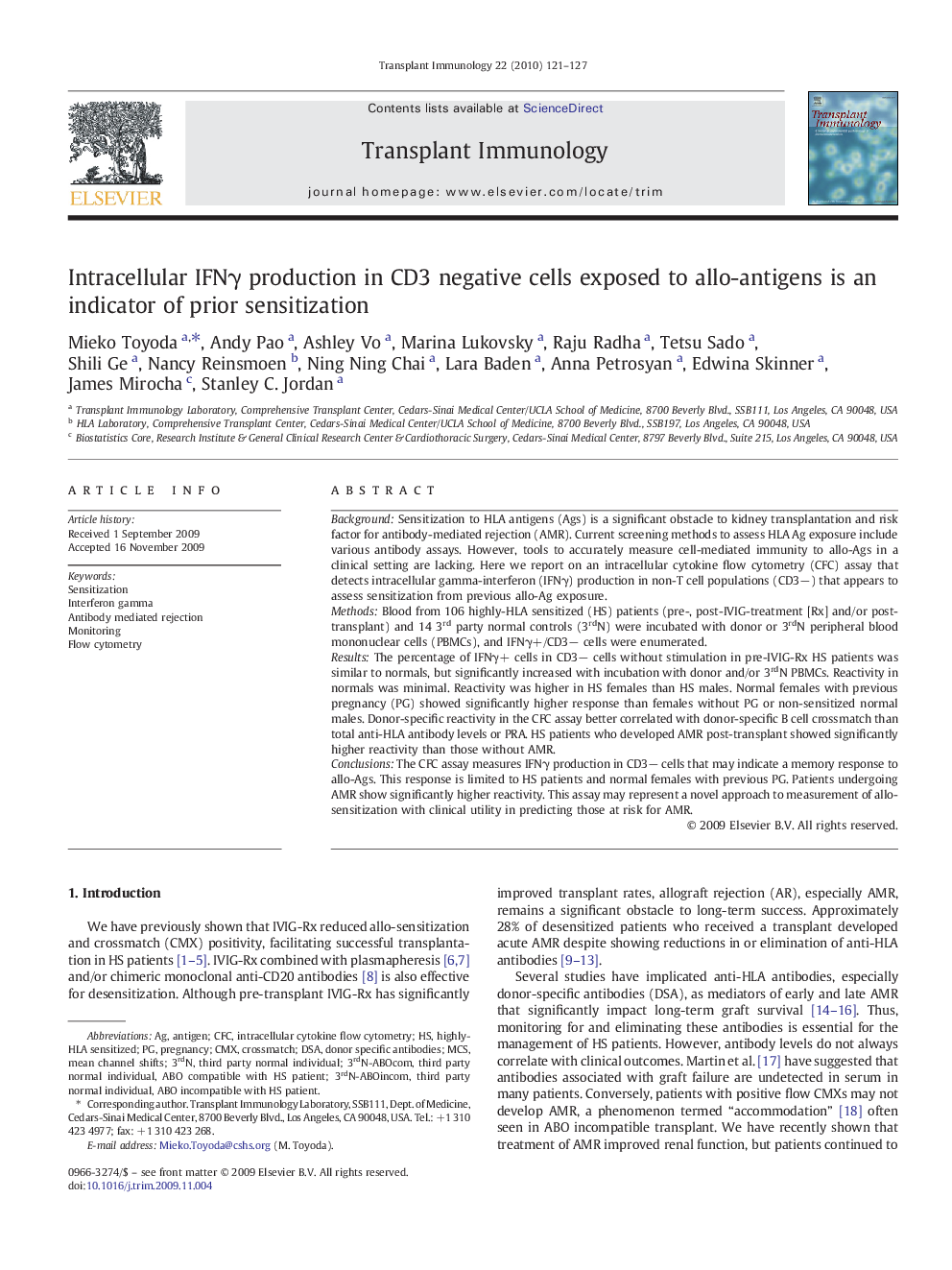| Article ID | Journal | Published Year | Pages | File Type |
|---|---|---|---|---|
| 3392358 | Transplant Immunology | 2010 | 7 Pages |
BackgroundSensitization to HLA antigens (Ags) is a significant obstacle to kidney transplantation and risk factor for antibody-mediated rejection (AMR). Current screening methods to assess HLA Ag exposure include various antibody assays. However, tools to accurately measure cell-mediated immunity to allo-Ags in a clinical setting are lacking. Here we report on an intracellular cytokine flow cytometry (CFC) assay that detects intracellular gamma-interferon (IFNγ) production in non-T cell populations (CD3−) that appears to assess sensitization from previous allo-Ag exposure.MethodsBlood from 106 highly-HLA sensitized (HS) patients (pre-, post-IVIG-treatment [Rx] and/or post-transplant) and 14 3rd party normal controls (3rdN) were incubated with donor or 3rdN peripheral blood mononuclear cells (PBMCs), and IFNγ+/CD3− cells were enumerated.ResultsThe percentage of IFNγ+ cells in CD3− cells without stimulation in pre-IVIG-Rx HS patients was similar to normals, but significantly increased with incubation with donor and/or 3rdN PBMCs. Reactivity in normals was minimal. Reactivity was higher in HS females than HS males. Normal females with previous pregnancy (PG) showed significantly higher response than females without PG or non-sensitized normal males. Donor-specific reactivity in the CFC assay better correlated with donor-specific B cell crossmatch than total anti-HLA antibody levels or PRA. HS patients who developed AMR post-transplant showed significantly higher reactivity than those without AMR.ConclusionsThe CFC assay measures IFNγ production in CD3− cells that may indicate a memory response to allo-Ags. This response is limited to HS patients and normal females with previous PG. Patients undergoing AMR show significantly higher reactivity. This assay may represent a novel approach to measurement of allo-sensitization with clinical utility in predicting those at risk for AMR.
